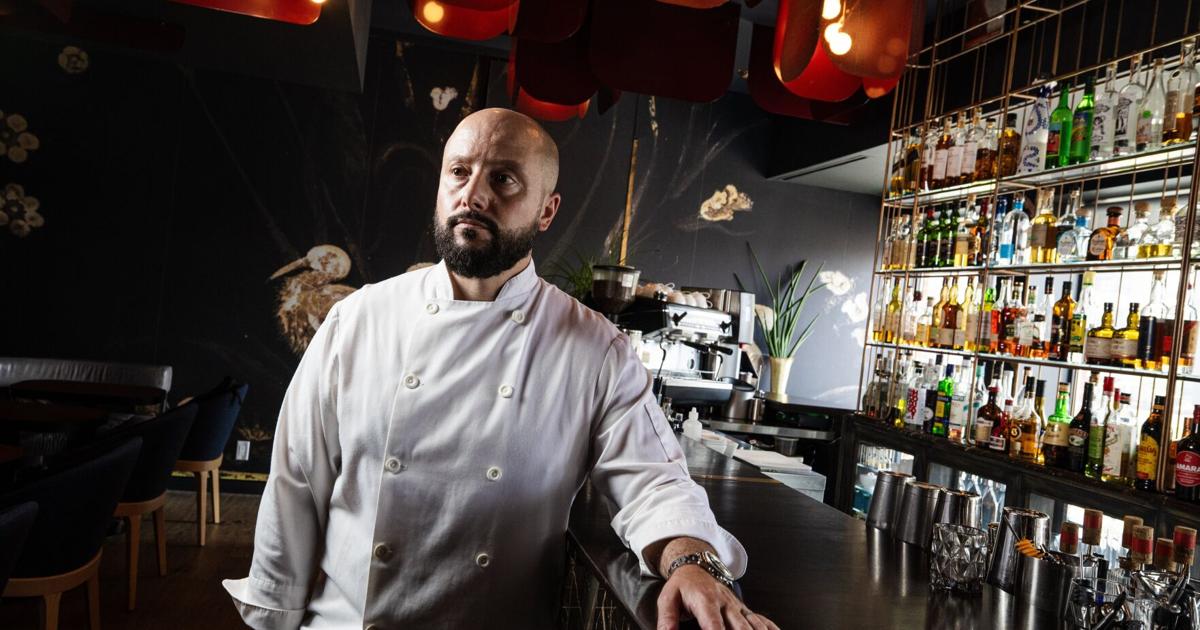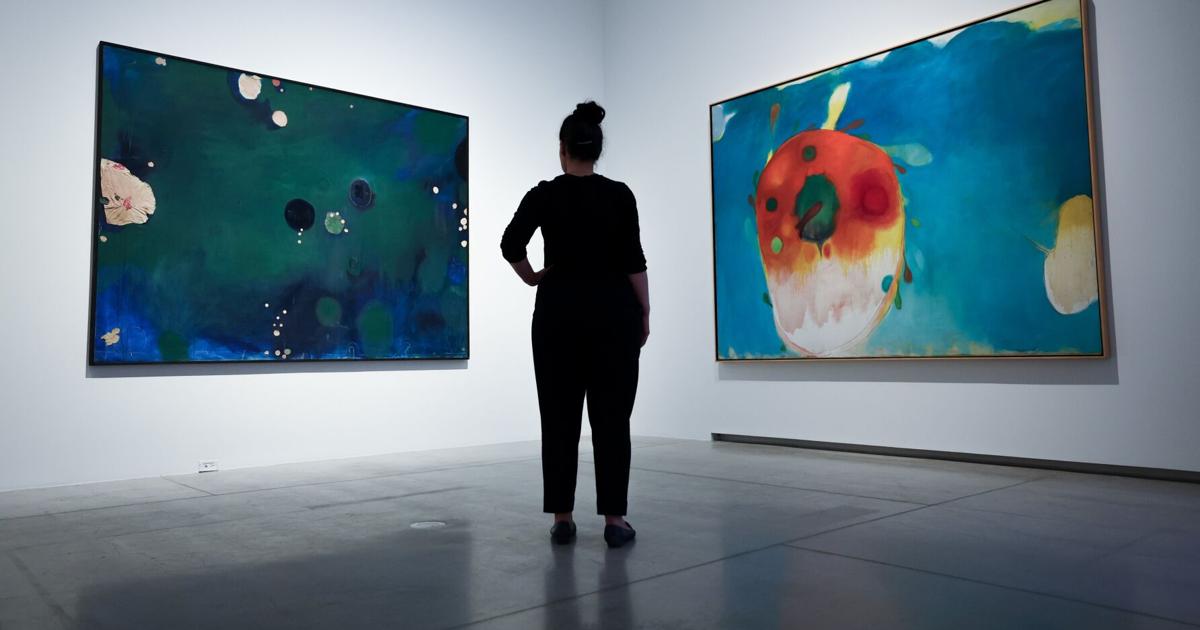When it comes to restaurants, Toronto is absolutely cutthroat. The diners are discerning. The critics can be scathing. And staying open for more than a few years — let alone turning a profit — is increasingly difficult in an era of spiralling prices and tightening budgets.
Then there’s Alo.
Alo just hit its 10-year mark — a small eternity in a city where restaurant turnover is notoriously fast. In a business that’s never been tougher, it hasn’t just survived — it’s stayed relevant, revered and fully booked. To mark the milestone, we spoke with owner-chef Patrick Kriss, longtime staffers, and local food folks for an oral history of how it started, and how it’s still going.
Chef Patrick Kriss deftly whisked together art and commerce to pull off a most astonishing mélange: not only does he run one of the best restaurants in North America (if not the world), but, 10 years in, reservations remain as coveted as ever, customer loyalty stays strong, and the acclaim continues. That’s no small feat, especially considering the multi-course French tasting menu comes with a $225 price tag — before drinks, extras, tax, or tip.
Even non–food snobs know what Alo is. (People frequently name-drop a rare Alo reservation as the ultimate first-date power move.)
After debuting at No. 7 on Canada’s 100 Best Restaurants list and spending multiple years at No. 1, Alo has never dipped below the top three. Even more impressive? Alo was just the start. Kriss has since opened a slew of other restaurants — including Alobar, Aloette, Aloette GO, and Alder — all beloved by finicky foodies and showered with Michelin praise.
And despite now running a miniature empire, most nights still find Kriss working in the kitchen until 1 or 2 a.m.
“I don’t really turn my brain off, so I’ve just accepted that,” he says. “I’ve always wanted to turn my brain off, but I’ve accepted that I’m 45 years old and I am who I am.”
The beginning
Kriss: I’d been working at Splendido, then I was at Acadia, and it was just the next progression: a restaurant I own and run in my vision. I didn’t really have plans. I just wanted a nice restaurant, a tasting-menu restaurant. I didn’t want it to be stuffy. I wanted the food to be delicious. But I wanted it to feel approachable, like you’re going into someone’s home and you feel taken care of.
Craig Wong, chef and owner of Patois and Ayla, and “MasterChef Canada” judge: At the time, there was a lot of restaurants that were starting to do very small, snack-bar-like items, and people were all about things that would pair well with drinks and it was going more towards the small bites and shared plates menu. Alo opened at a time where there was not as many tasting menus and refinement so that was going against the grain. Patrick knew himself, and…that he was always going after the high-end tasting menus.
I remember the first time I went to eat there. It was $85 — unheard of. They were looking to be a bit friendlier and a little bit more open but everybody knew the skills Patrick had: everybody knew what he was capable of.
Kriss: I didn’t really care what everyone else was doing. I just had this idea in my head — like, this is what we need to do to be successful.
I just knew I wanted to play hip-hop.
And I had no idea what I was doing. Zero. Because I had to build it. I’m like, “OK — now what?” When you’re naive and you really don’t know what the process is — you don’t know the roadblocks — you just keep going. There’s always construction delays and they always bullshit you, but I was here all the time. I knew the drawing and I just switched my hat from cooking to this and I figured it out.
Opening night and early days
Kriss: There was no plan B. I remember (pastry chef) Cori Murphy’s dessert, with white chocolate and cucumber, and I’m like, “this is weird,” then I tasted it, and I knew people were gonna like it.
“I just stuck to the plan — which can be really difficult. That first day, we only did 16 covers. But even if you’re not that busy, you still use the same ingredients, you don’t cut your staff. I think our guests appreciated that.
And then Chris Nuttall-Smith (at The Globe) gave us our review — and we had other problems to deal with (due to how busy we got). We had to figure out the phone issue. Our reservation system didn’t work the way we needed it to, so we had to switch. But we figured it out.
I don’t know (how Nuttall-Smith’s review made me feel). Nothing. It’s like, “oh, f—k, that’s good, OK, now what’s up tomorrow?”
I don’t think (about the accolades). I don’t think like that at all…I don’t really think about the outside stuff…That’s for other people to talk about. I’m just who I am.
Amy Pataki, former Toronto Star restaurant critic: Alo sharply departed from the city’s nose-to-tail dining culture sparked by the Black Hoof. “Rustic” and “artisanal” were then the industry buzzwords. Restaurants like the now-closed Farmhouse Tavern in the Junction sat diners on tractor seats and served drinks in mason jars. Alo aimed for unfussy sophistication and nailed it.
Christopher Sealy, wine director who joined Alo in 2015: My first day was curious. I did not know what to expect. I had not worked in an operation with such drive and ambition. The steps to service, the orchestration and flow of service: it was not a typical fine-dining theatre of action. (There was) a common goal in the team to create new experiences in food, wine and service, that did not follow pre-conceived notions of fine dining. We were doing what no one else was doing in the city and doing it well.
Shyanne Vautour, general manager who started as reservations manager in 2020: The environment itself was intimidating and intense. There was a lot to learn and the thought of making a mistake was nerve-wracking.
Staying on top
Kriss: We’re always tweaking the menu with the seasons, when we get bored of it, to keep the cooks excited about new things coming in and the front of house excited about serving them. Now, Alo is just continually evolving: trying to get better, finding new ingredients, trying to one-up ourselves. We don’t really bring old dishes back. I feel like we need to continue to push ourselves and never really be happy with what we used to do.
Vautour: The hardest part is maintaining consistency. We have high standards and our guests have high expectations. The guest experience is very important and it takes an incredible amount of coordination, communication and focus from everyone, every day.
Kriss: We have a ton of regulars, so it also keeps them wanting to see what’s next and growing with us. They’re like family. We’ve been here 10 years, so you see their kids grow up. Or some of their kids work with us.
We’ve had a couple customers who have had their first date here and now they’re married. I wouldn’t (bring a first date to Alo) — could be three hours of misery! Keep bringing your first dates, though; we love you all.
Sealy: The constant vigilance during service (took some getting used to). Patrick’s obsession with details teaches you to observe the room with more attention.
Vautour: It’s the little things we do every night. One example is the personalized cards we place on tables for guests celebrating something special. It’s a small touch, but when they notice it, they are surprised. Just the other night, we had a guest who was clearly enjoying each dish more than the last. For his next course, we decided to shave a little extra truffle tableside, just as a thoughtful gesture. He was over the moon and thankful. Moments like that remind me why we do what we do. When you see the joy that comes from the small gestures and personal touches that make someone’s night, that is a good feeling.
What’s next
Kriss: (In terms of selling the restaurant one day), it’s probably not worth anything. I guarantee you it’s not worth anything, not for what I paid for it. (So why do I keep opening more and more restaurants?) I don’t really have a good answer for you. I just like it. I like the challenge, I like the team-building. If I have an idea, I’ll see how long it lasts in my head. If it lasts a long time, then okay, this could be a real idea. If it won’t last more than three hours, then I’ll delete it out of my notes immediately, like, “yeah, that was stupid.”
Like, I have an idea right now that I wanna do. I haven’t really told too many people about it. I don’t think I’ve told anyone about it, but it keeps going on in my head.
So eventually we’ll do it.
These interviews have been edited and condensed for clarity.



